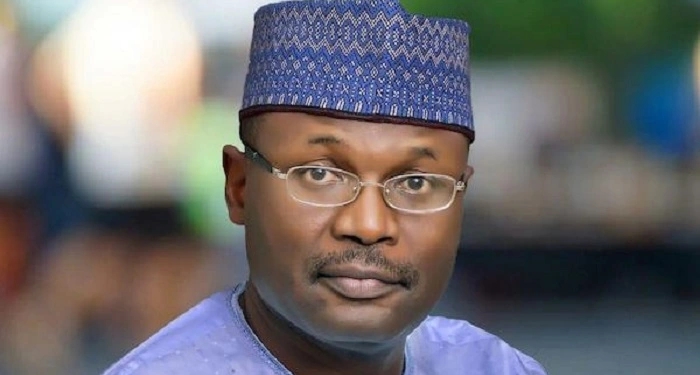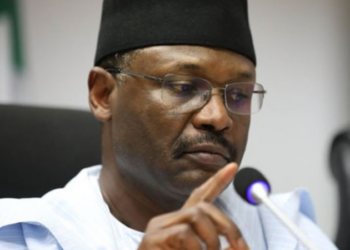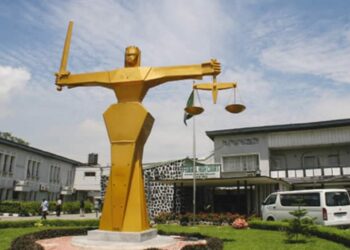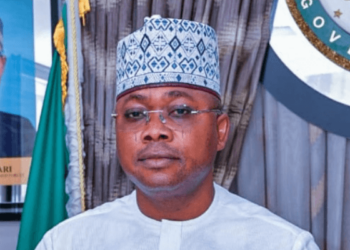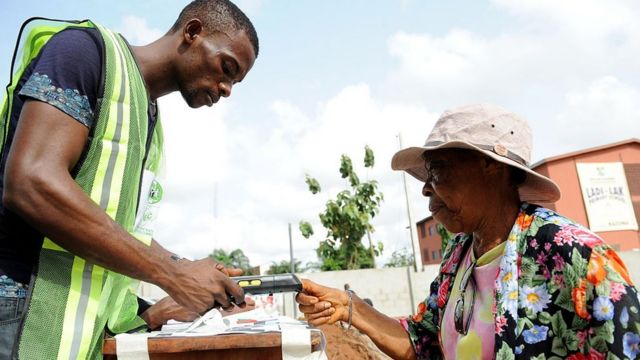Today, patriotic Nigerians across the country are out fulfilling their civic duty in the form of electing a new President to govern the nation for the next four years. This is probably the most anticipated election in Nigeria’s history due to all the things at stake. And that’s because Nigerians are fed up with the economic hardship they’ve faced in the past eight years.
Asides from that, this presidential election features a minority party candidate, Peter Obi, who has been able to gather followership, especially from the youths of Nigeria. His participation has seen Nigerian youths actively get involved in the political process like never before.
His party, the Labour Party, also threatens the All Progressive Congress (APC) whose candidate is Bola Ahmed Tinubu and the Peoples Democratic Party (PDP), whose presidential aspirant is Atiku Abubakar.
Nigeria’s electoral shortcomings: Nigeria has had a long history of issues with its election process, including fraud, violence, and voter suppression. Some of the most significant problems include;
- Voter Suppression: Many Nigerians have been disenfranchised due to factors such as inadequate voter registration, voter intimidation, and violence. In some cases, entire regions of the country have been excluded from the election process due to insecurity or political violence.
- Voter Fraud: Voter fraud is a significant problem in Nigeria. The election process has been marred by incidents of ballot-box snatching, vote-buying, and manipulation of results. These practices have led to a lack of confidence in the election process and have been a source of political instability.
- Violence: Violence is a recurring issue during election cycles in Nigeria. Political parties often use thugs to intimidate voters and disrupt the voting process. In some cases, this has led to deadly clashes between rival groups and has resulted in the loss of lives.
- Inadequate election infrastructure: Nigeria’s election infrastructure is inadequate to support the country’s large and diverse population. Polling stations are often overcrowded, and the voting process can be slow and inefficient. This has led to long queues and frustration among voters.
- Lack of Transparency: The election process in Nigeria has often lacked transparency. There have been instances where election officials have tampered with results, and the results have not been announced promptly. This has led to suspicion and distrust among the public.
- Ethno-Religious Tensions: Nigeria is a diverse country, with over 250 ethnic groups and multiple religions. These differences have often led to tension and conflict during elections. Politicians have been accused of exploiting these differences for political gain, leading to violence and instability.
How Blockchain will fix these shortcomings: Blockchain technology has been touted as a revolutionary tool for improving transparency, security, and accountability in a wide range of industries. One area where it has the potential to make a significant impact is in the election process of developing nations such as Nigeria. As earlier highlighted, Nigeria struggles with election fraud, voter suppression, and lack of transparency in its election process.
By leveraging the benefits of blockchain technology, Nigeria could greatly improve the integrity of its electoral process to ensure a free, fair, and transparent voting environment. Now, let’s see how blockchain can improve the election process in developing nations:
- Voter Identity Verification: One of the most significant challenges in Nigeria is voter identity verification. The nation continues to struggle to maintain accurate voter rolls, which can lead to fraud and abuse. Blockchain technology can be used to create a tamper-proof digital identity for each voter, which can be used to verify their identity when they cast their vote. This would prevent people from voting multiple times or impersonating someone else.
- Decentralization: Decentralization is a key feature of blockchain technology. By using a decentralized system, there is no central authority that can manipulate the election results. Each node on the network has a copy of the blockchain, and any changes must be validated by the entire network. This makes it virtually impossible to hack or manipulate election results.
- Transparency: Blockchain technology can provide complete transparency in the election process. Each vote would be recorded on the blockchain, and anyone can view the results in real time. This would prevent any attempts to manipulate the election results and ensure that the process is fair and transparent.
- Improved Security: Blockchain technology is highly secure and resistant to hacking. Each block in the chain is encrypted using complex mathematical algorithms, making it virtually impossible to alter the data. This ensures that the election results are accurate and cannot be tampered with.
- Reduced Costs: The current traditional electoral system operating in Nigeria today, can be expensive to run and maintain, especially because the nation is suffering from a revenue crisis today. By using blockchain technology, many of these costs can be eliminated. There is no need for expensive voting machines, ballot papers, or manual vote counting. Instead, everything is done electronically, which can save a significant amount of money.
- Increased Accessibility: In many developing nations, people who live in remote or rural areas may not have easy access to polling stations. By using blockchain technology, people can vote from anywhere using a computer or smartphone. This would increase accessibility and allow more people to participate in the election process.
- Quick Results: With blockchain technology, the election results can be computed in real-time. This means that there is no need to wait for days or even weeks for the results to be announced. This would increase trust in the election process and reduce the chances of violence or unrest.
What you should know: Though implementing a blockchain-based election system is great, it, however, does not come without its challenges. Firstly, there is a need for a high level of technical expertise to develop and maintain the system. Secondly, the infrastructure required to support the system, such as internet connectivity and computer hardware, may not be available in some remote areas in Nigeria, as some regions still do not have good road network systems talkless of internet connectivity.
Finally, there is a need for public trust in the system, and people must be educated about how blockchain technology works and how it can improve the election process.
Blockchain technology has the potential to revolutionize the election process in Nigeria. Providing a secure, transparent, and decentralized system can help ensure fair and accurate voting and reduce the chances of fraud and abuse.

